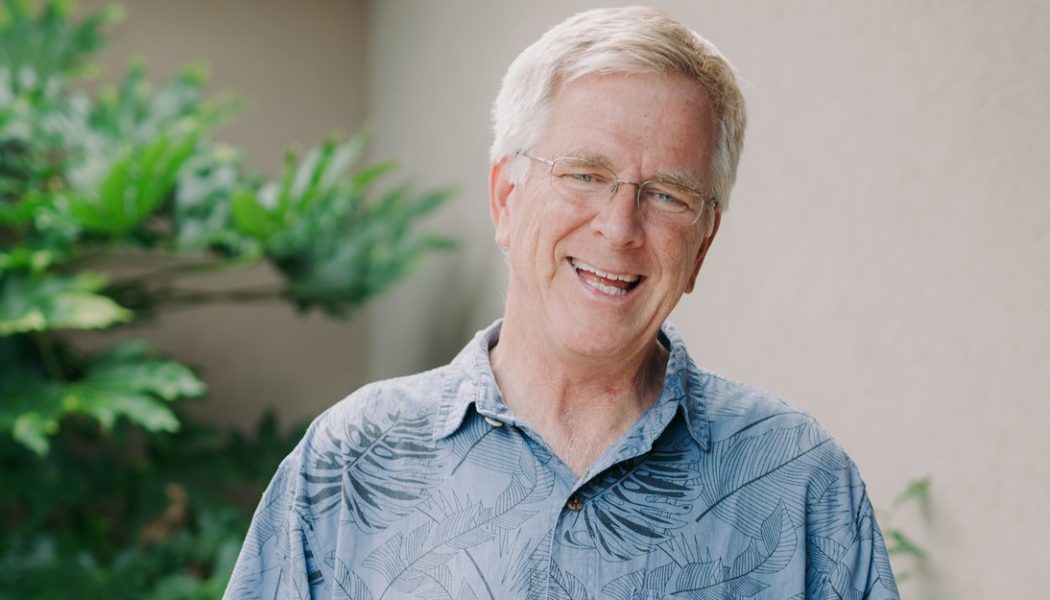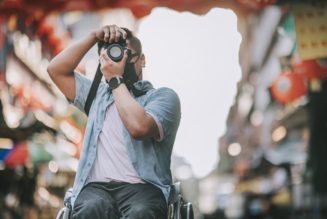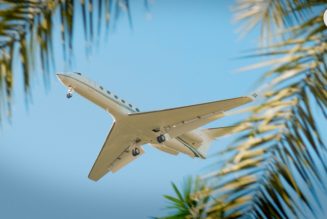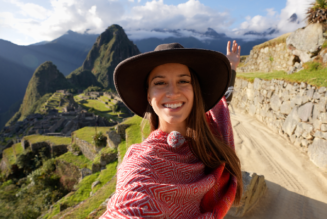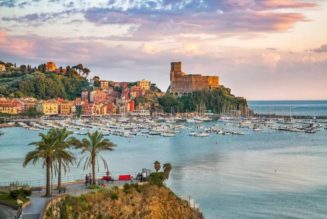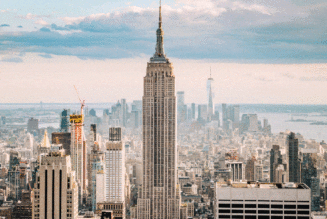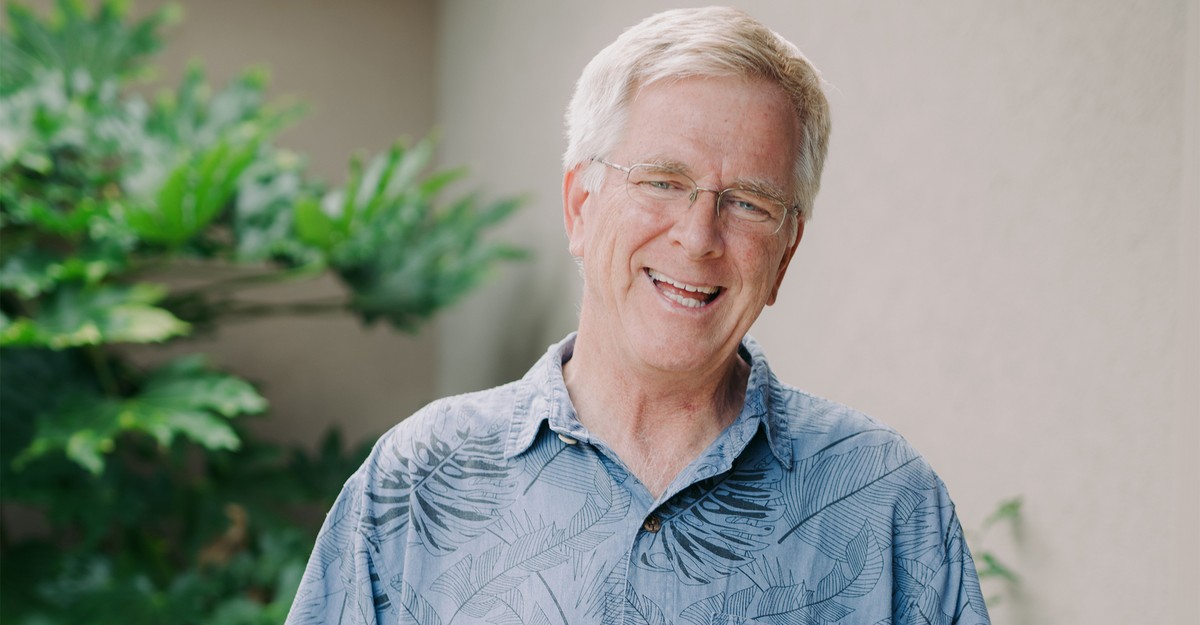
When the Washington State–based travel guide and TV host Rick Steves decided to return to Europe in early 2022, he wasn’t sure how many of his favorite local spots had survived two years of pandemic life. Steves, who has hosted Rick Steves’ Europe for the past two decades and operates tours aimed at introducing American travelers to the continent, was pleasantly surprised by what he found: Many of his beloved places—the kind of mom-and-pop places that have been owned by the same families for generations—had made it through, and the streets were alive anew. “They’re kissing cheeks with a vengeance in Paris right now,” he told me. “And I’m really thankful for that.”
Steves and I caught up to discuss the rebound in tourism and how travel has changed since the start of the pandemic. He also warned that this summer may be a particularly busy one—perhaps the continent’s busiest yet—and offered practical tips for traveling amid crowds. (Consider heading to less-popular destinations, and don’t bother checking a bag!)
Our conversation has been condensed and edited for clarity.
Caroline Mimbs Nyce: Is COVID the biggest challenge that you’ve been thrown in your career?
Rick Steves: With every terrible event that stops travel for a little while, the demand does not dissipate; it just backs up. And then, when the coast is clear, all of those travel dreams are dusted off, and people turn them into reality.
In the course of my career, we’ve been through many tragic disruptions, but they didn’t really stop people from traveling. But for COVID, we were out of business. I had 100 people on my payroll and no revenue for two years. And that’s really tough to get through. Everybody in tourism is really thankful to get back at it. Guides are tearful on the bus after they’ve had a chance to give their historic walk to ancient Rome or through the back streets of Venice.
Nyce: There’s always the big, philosophical question of “Why do we travel?” Did the answer change for you during the pandemic?
Steves: If we travel, we are better connected with other nations, and the family of nations can work more constructively together. And to me, that means all of us are individual ambassadors—individual forces for peace. When we travel, we get to know each other better. We humanize people that we don’t otherwise understand.
Nyce: We most often associate travel with leisure, but you’re making a geopolitical case for it.
Steve: Well, if you want a rationale for why: I’m feeling very serious about climate change lately. When people travel, they contribute to climate change. A thoughtful traveler—an ethical traveler coming out of COVID—can reduce the toll of travel by paying for their carbon.
Nyce: Do you have any other tips for the ethical traveler of 2023?
Steves: Recognize that we have sort of a herd mentality when it comes to travel these days.
Nyce: The Instagram effect.
Steves: Exactly. It’s Instagram, crowdsourcing, and Tripadvisor. When I started my work, there was not enough information. Now there’s too much information. As consumers, we need to be smart and know where our information is coming from. Who’s writing this, what’s their experience, and on what basis do they say this is the best hot chocolate in Paris? People say, “Oh, this hot chocolate’s to die for.” It’s their first time in Paris, and they think they know where the best hot chocolate is.
Also, the crowds are going to be a huge problem. Just like in the United States, it’s hard for restaurants to staff the restaurants and for airlines to staff the planes. That means you need to double-confirm hours and admission. You need to anticipate chaos in the airports. Book yourself a little extra time between connections, and carry on your bag.
Another thing is that museums and popular cultural attractions learned the beauty of controlling crowds by requiring online booking. At a lot of sites, you can’t even buy a ticket at the door anymore.
Everybody goes to the same handful of sites. If you just go to those sites, you’re going to have a trip that is shaped by crowds. Or you can break free from that and realize that you can study the options and choose sites that are best for you. You can go to alternative places that have that edge and that joy and that creative kind of love of life. “Second cities,” I call them.
Nyce: How much have you had to update your guidebooks since COVID? Are there favorite spots of yours that have closed because of the economic ramifications of lockdowns?
Steves: In 2019, we were euphoric about how well our guidebooks were doing. Everything was up to date. And then, of course, COVID hit, and everything was mothballed for two years.
In early 2022, we decided to go back and research. The things that distinguish a Rick Steves guidebook are all of the little mom-and-pop places. And I was really, really scared that these were going to be the casualties of two years of no business.
The great news is, by and large, all those little mom-and-pops survived. There were very few closures. There were lots of changes with bigger companies and places that just focus on tourists. But our local favorites—the little bed-and-breakfasts and bistros—they survived. They’re mission-driven. They’ve been in the same family for generations. They just trimmed sales, hunkered down, and got through this. Last year, they were back in business, and this year, they expect to be making a profit again. We’ve cleaned out the places that did close.
Nyce: What have you noticed about the post-COVID tourism rebound?
Steves: First of all, we’re not done with COVID. We don’t know what curveballs COVID is going to throw at us in the coming year. Last year, we took 25,000 people to Europe on our Rick Steves bus tours, on 40 different itineraries all over Europe. Four percent of our travelers tested positive for COVID on the road. None of them, as far as I know, went to the hospital.
I can’t say what’s safe for you or some other traveler, but I can say that if you’re comfortable traveling around the United States, you should be comfortable doing the same thing in Europe or overseas. It’s a personal thing, how much risk vis-à-vis COVID you want to take. And it’s an ethical issue for travelers: If you’ve got COVID, do you isolate yourself, or do you put on a mask and keep on traveling? I think the ethical thing to do is not expose other people, hunker down, and self-isolate.
We’re meeting with our guides each month, and we’re making our protocols in an ever-changing COVID world for that coming month. It was workable last year, and I think it’s going to be better this year.
Nyce: You sound pretty optimistic about the recovery of the industry. I wasn’t sure from when I got on the phone with you if you were going to say, “It’s forever scarred. Europe is a different continent.”
Steves: Oh, no. I measure the health of Europe, from a travel point of view, by the energy in the streets. In Madrid, the paseo is still the paseo. You’ll still enjoy the tapas scene, going from bar to bar, eating ugly things on toothpicks, and washing it down with local wine with the local crowd. In Italy, it’s the passeggiata—everybody’s out strolling. People are going to be busy on the piazzas licking their gelato. In Munich, they’re sliding on the benches in the beer halls, and clinking their big glasses and singing, just like before.
People said, “No one is going to be kissing cheeks in Paris, because everybody’s going to be so worried about germs.” They’re kissing cheeks with a vengeance in Paris right now, because they have survived COVID. And I’m really thankful for that.
